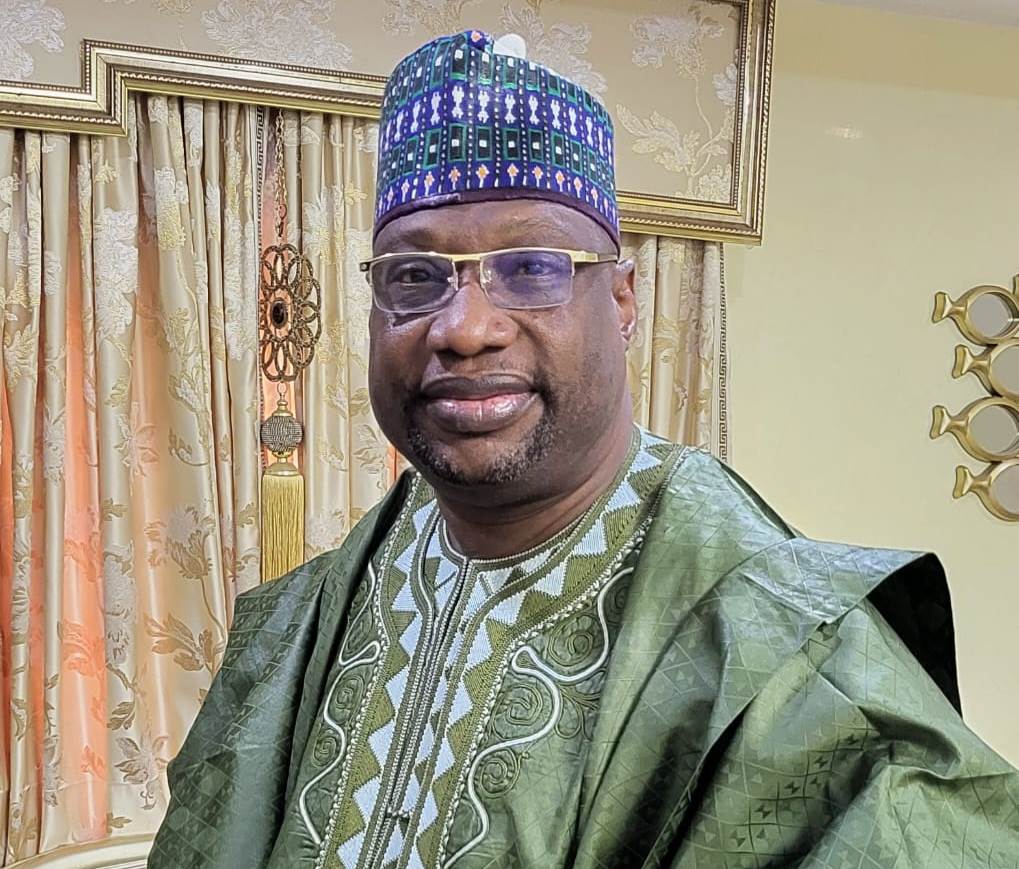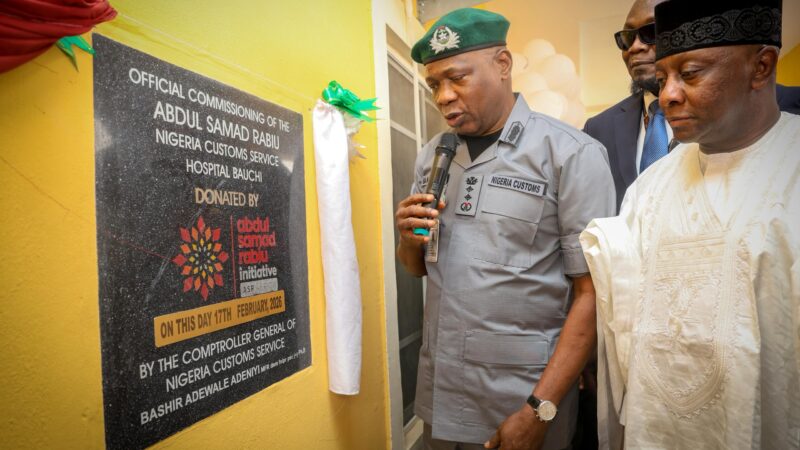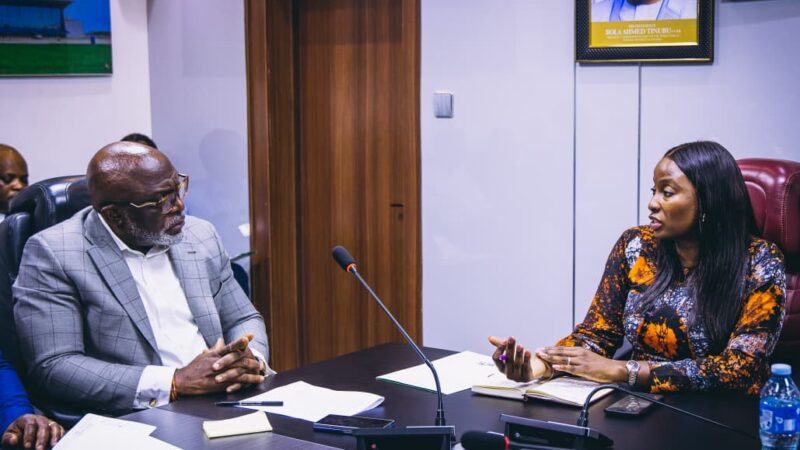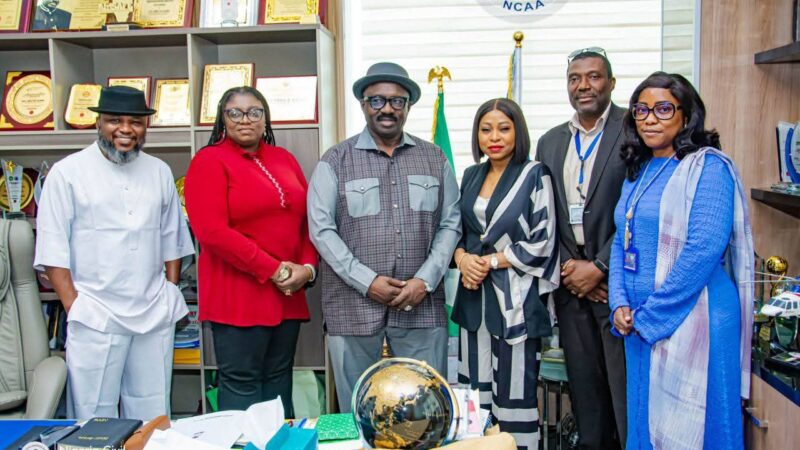NAMA undergoes transformation as Farouk unveils new direction

The Managing Director of the Nigerian Airspace Management Agency (NAMA), Umar Ahmed Farouk has shed light on the agency’s significant transformation and achievements since his appointment.
In a recent interview with aviation journalists, Farouk said he took the helm amidst low morale and service delivery challenges, but embarked on a mission to revitalise the agency and enhance its operational efficiency.
Addressing the pressing issue of worker welfare, the MD emphasised the importance of creating a conducive environment to boost productivity.
He noted that under his leadership, initiatives were implemented to improve communication, navigation, surveillance, and power systems, vital for the agency’s core responsibilities.
Acknowledging infrastructure decay as a longstanding challenge, the MD highlighted the strides made in upgrading communication systems to accommodate the growing air traffic demand.
He disclosed that the agency has invested in solar energy deployment and is making efforts to access budgetary allocations to overcome power supply hurdles.
Furthermore, the MD outlined progress in replacing obsolete navigation facilities and modernising surveillance systems, with the aim of enhancing operational efficiency and safety standards.
“Before now, most of the airlines avoided Nigerian airspace and they found it extremely difficult to communicate with air traffic controllers; the reason was that the communication system was weak, and over-saturated due to demand. As the industry is growing, you should expect more routes to open and there was no corresponding facility to match the emerging air traffic.
“So, what we did was to cause a huge investment in that regard by the Federal Government. We realised that there were so many openings, so many routes, we had to increase more stations to have signals that would cover the entire Nigeria.
“The entire communication had been re-designed to make sure that everywhere, every blind spot is covered and where we are today, even if one system fails, the air traffic controller will not notice because there is an overlap and one overlaps the other; the other one will assist you.
“We realised also that our radios are working well and well positioned and we have addressed the challenges we met but then, we are still having issues.
‘These issues have nothing to do with radios, now it has to do with electricity. That is why I declared an emergency on power and you will agree with me that power is a national issue for decades and has defied solutions and the government is still working hard to ensure that they get it right.
“What we have decided to do is to deploy solar energy to some of these facilities so that they can function well. We have two sources of power. We have the primary one which is the national grid and we have the second one which is generators, and plants and the third one is solar.
“We deployed all these three because ICAO frowns at a situation where you have a blackout even for seconds; so, we make sure that we have an uninterrupted power supply. The funding is not there. We are approaching it systematically to make sure that communication is good.
‘At the moment, we have significant improvement but there is still room for improvement. Recently, the minister approached the presidency for intervention and N40 billion was budgeted but we are yet to access the money.
“As soon as it is done, we will be able to tackle safety critical challenges that are before us as far as communication is concerned. If you go to Navaids, we are also having obsolete facilities. For an average electronic system, the lifespan is about ten years.
“Most of these electronics have been working for the past 15-20 years. You will expect the performance to be below the standard. We are replacing them; we have commenced replacement of all these facilities. If not for funding, we would have finished replacing all of them.
“But for now, we have done almost 80% but the contractors are still working. The level of patriotism in them is highly commendable. They have understood us and they are working hard to ensure that they complete the project. Here, we have surveillance.
“This is where I have a serious challenge. The TRACON we are having has been having challenges. I will categorically tell you that since 2014, we have not had enough spare parts. The cost of spares is the issue and the obsolete state of the equipment.
“The FEC has approved the modernization of the TRACON system. 15% of the fund has been paid and we are hopeful when the presentation from Thales, they will commence installation as soon as other things are put in place.
“We are hopeful that at the end of it, at least the system will go back to optimal performance. That is as far as surveillance is concerned. The other one is the power system is also part of the approval that we got.
“All these things I am saying, there is a tremendous improvement and the hindrance to working effectively is squarely on the power issue. If they get this N40 billion presidential intervention, I am telling you that in the next few months, we will be able to conquer these challenges.
“Another one I know is the one that has to do with AIS automation. This programme has been ongoing for the past nine years or more. This boils down to funding.
“The Honourable Minister of Aviation has come to the rescue of the company. As I speak to you, they have gone back to work because they have been financed and we are hopeful all things will be equal.
“In the next quarter, this nine-year, ten-year programme will see the light of day and come to fruition. All things being equal, in the third quarter of this year, we should be completing that project,” Farouk said.
Despite strides in infrastructure enhancement, the shortage of air traffic controllers remains a concern. The MD underscored the time-consuming nature of recruiting and training controllers, stressing ongoing efforts to address the manpower gap.
Industrial harmony, a historically elusive goal for NAMA, has been achieved through proactive engagement with labor unions and a commitment to addressing staff concerns.
On the issue of navigation charges, the MD stressed the need for a review to reflect current economic realities and the agency’s cost recovery mandate. Plans for stakeholder consultations indicate a transparent approach to the adjustment process.
The MD also commended the Minister of Aviation and Aerospace Development for his support in fostering a conducive environment for professional agency operations, free from political interference. The Minister’s commitment to professionalism and non-interference has been instrumental in facilitating NAMA’s transformation journey.
Overall, NAMA’s new direction under the leadership of the MD promises enhanced service delivery, improved infrastructure, and a renewed focus on safety and efficiency in Nigerian airspace management.







